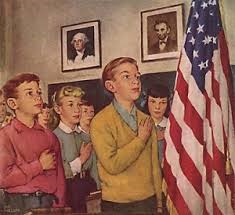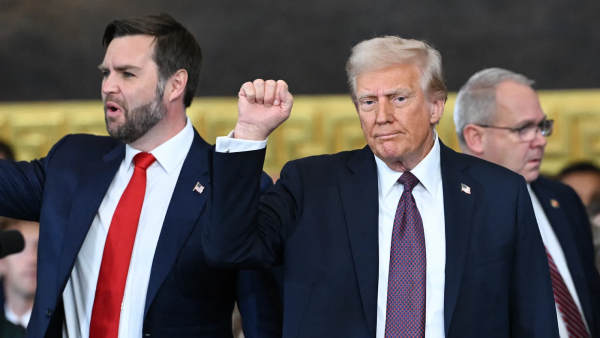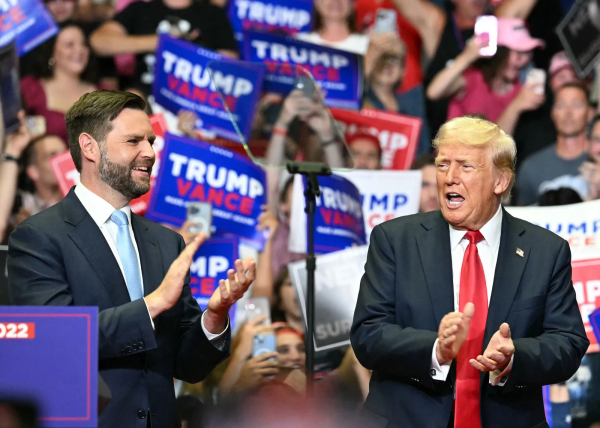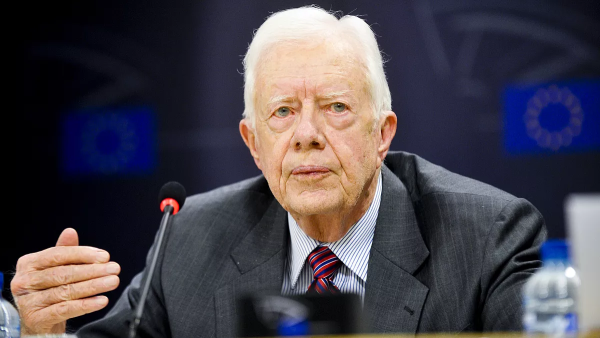Students Challenge Pledge Requirement

Image courtesy of AmericanVision.org
In the past two years, there has been a lot of controversy surrounding the Pledge of Allegiance and the national anthem. In 2016, a surge of police brutality cases and killings of unarmed black people by law enforcement led to civil uproar.
To combat this serious issue, Colin Kaepernick sat during the national anthem before his games. After coming under scrutiny and criticism of disrespecting the troops, Kaepernick proceeded to kneel. However, he was still heavily criticized and labeled as unpatriotic. Eventually, President Trump weighed in and called for all players who kneeled to be fired. This sparked a movement of students and student-athletes to kneel during the national anthem and the Pledge of Allegiance around the country. Some may have noticed that this controversy has touched Winter Springs recently and Principal Gaffney addressing it.
While the reasoning for not participating in the pledge may be different, the actual act is nothing new. In 1943, the US Supreme Court decided that public school students should not be required to recite the Pledge of Allegiance. This ruling came after the West Virginia Board of Education V. Barnette case in which a family of Jehovah Witnesses sued the West Virginia Board of Education for expelling their daughters. As part of religious custom, Jehovah Witnesses do not salute the flag or recite the Pledge of Allegiance. Marie and Gathie Barnett were expelled for “insubordination” after refusing to recite and salute.
Similarly, in 2002, the Court of Appeals for the Ninth Circuit in San Francisco ruled the Pledge of Allegiance was unconstitutional in public schools; effectively having it banned in Alaska, Arizona, California, Hawaii, Idaho, Montana, Nevada, Oregon, and Washington. Under this ban, versions of the Pledge of Allegiance without the words “under God” could be recited at the students’ discretion. Ultimately, the ruling only lasted two years before being reversed by the U.S. Supreme Court on the grounds that the plaintiff, Michael Newdow, had insufficient legal standing. Due to the fact that Newdow did not have legal custody of his daughter and therefore could not challenge the court on her behalf.
Today a different reason for not participating in the Pledge of Allegiance, which has very little to do with the pledge itself, has caused controversy. Social injustices. This begs the question of how everyday people feel about the issue.
“[The Pledge of Allegiance] is a good thing to do daily… you can believe in what you want.” Hayden White, a junior at Winter Springs High, said.
White stated that he stood for pledge but doesn’t recite it because most people don’t.
“The pledge is what I used to show my loyalty towards the United States of America.” Former Marine, Louis Sanders, Sr. said.
He followed up by stating that he always stands and recites the pledge. However, Sanders held a different opinion for others…
“Not standing for the pledge is a way for young people to stand up for what they believe in.”
Whatever the reason, standing and reciting the pledge has become a thing some people do and a thing others don’t. Whether the reason is social conformity, protest, or way to show patriotism the main takeaway of the whole thing is, we are all still American. With or without a pledge.






